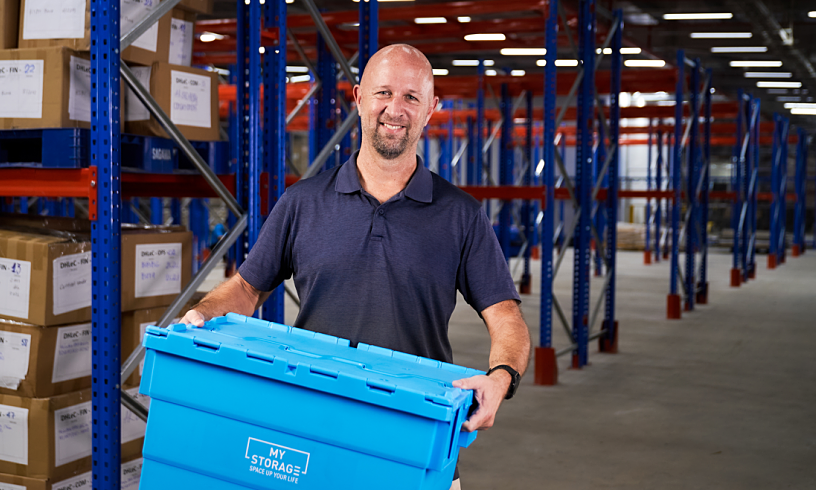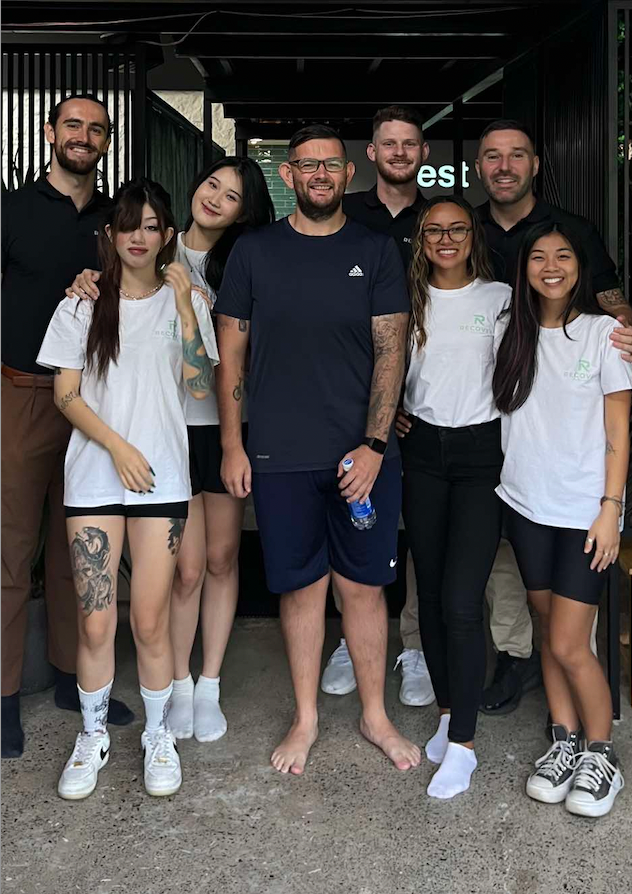
The British entrepreneur Graeme didn’t anticipate that his 2023 visit to Vietnam would present him with a business prospect compelling enough to make him decide to remain there.
A former footballer who retired at 21 due to injury, he had initially planned to launch a retail business in Bali, Indonesia. But friends discouraged him, citing the market's competitiveness.
While visiting Vietnam in 2023, he identified its promise as a perfect location both for residence and professional endeavors. Given its substantial populace of 100 million, with three-quarters below the age of 30, along with its extensive coastlines fostering commerce, the nation seemed poised for expansion.
"The expenses for living and starting up are notably low," states the 37-year-old.
He first opened a café and an Airbnb business. Then, by chance, he noticed a demand for post-injury sports rehabilitation, an industry largely untapped in Vietnam. Recalling his own recovery process, he saw an opportunity to introduce sports rehabilitation technology to the country.
He partnered with Jordan, a friend with a degree in sports science, to launch a new venture. By mid-2024, they had imported equipment from the U.K. and U.S. and opened Recover, a sports rehabilitation center catering to amateur athletes, in HCMC. Vietnam’s significantly lower business registration and labor costs and operational expenses gave them a competitive advantage over markets like the U.K. and Australia, he says.

|
|
Graeme (far right) with staff members at the center in Thao Dien Ward, Ho Chi Minh City. Photo courtesy of Graeme |
But he encountered cultural business challenges, particularly in staffing. He found that Vietnamese employees were often reserved when working with foreigners. Many arrived late for work, delaying the center’s opening, something unacceptable in the service industry. Tortuous banking procedures made payments and financial tracking challenging.
A few months later he expanded his team, hiring Myanmarese staff and receiving legal guidance from his Vietnamese wife.
"Without local connections, running a business here would be very difficult," he says. "Language barriers and different business cultures are major challenges."
After six months Recover stabilized, and he began planning an expansion into Hong Kong.
Graeme is one of many foreign entrepreneurs choosing Vietnam, especially HCMC, as their startup base. According to StartupBlink, a global startup ranking platform, as of 2024 HCMC had 182 foreign-owned startups, 52% of the country's total. Over three years the city jumped 68 places to 111th among the world’s top startup hubs.
This growth is fueled by Vietnam’s improving business climate. The 2020 World Bank Doing Business report ranked Vietnam 70th out of 190 countries for business-friendliness. Key reforms like streamlining business registration and reducing processing time to under a month have further facilitated foreign investment.
Vinnie Lauria, founder of venture capital firm Golden Gate Ventures, which backs startups in Southeast Asia, says Vietnam’s startup ecosystem has flourished over the past decade. The country has attracted foreign entrepreneurs in edtech, fintech, healthtech, and digital transformation.
Vietnam’s economic growth, stable education system and young, ambitious workforce make it an attractive business destination, he says. The country’s vibrant street life, motorbike culture, and diverse cuisine further boost its appeal, he says.
"Unlike any other Southeast Asian country, Vietnam has a unique energy—both chaotic and orderly in its own way."
American entrepreneur Aric Austin experienced this firsthand when he visited his brother in 2018. A former media startup executive in New York, the U.S., he later founded and sold two companies to Glam Media and Yahoo in Germany.
"I wanted to take on a new challenge in Vietnam ," he says.

|
|
Aric Austin at a warehouse in Ho Chi Minh City, March 2025. Photo courtesy of Austin |
The idea emerged when he struggled to find a storage facility while relocating from Berlin to HCMC. His landlord had no recommendations, and he was surprised by the absence of personal storage services in Vietnam in stark contrast to neighboring Thailand, Malaysia, Singapore, and Hong Kong, where the industry was already well-established.
"I knew Vietnamese consumers would eventually demand this service," he says.
After a year of research he launched My Storage, a personal storage business, in 2019. But the business required a lot of effort to build consumer awareness. One of his early customers told him they were relieved to find his service, as they previously had to rent a hotel room just to store furniture during a home renovation.
"This showed that demand existed, but most people were unaware of available solutions," Austin says. "Changing consumer perceptions could take five, 10 or even 15 years."
He noticed a significant distinction between Western and Vietnamese consumers: in the West, customers actively look for services, whereas in Vietnam, companies need to approach them directly. invest heavily in marketing to raise awareness and create demand.
When My Storage initially launched, it stood alone as the sole enterprise of its type within Vietnam. However, now multiple rivals—some even from abroad—have joined the fray. Despite this increased competition, he maintains an optimistic stance, arguing that these new entrants will boost public recognition and assist consumers in understanding the advantages offered by individual storage solutions.
Lauria emphasizes that successful startup ecosystems thrive on diversity. A Kauffman Foundation study found that over 50% of Silicon Valley’s billion-dollar companies were founded by immigrants, underscoring their role in driving innovation and economic growth.
However, Lauria recognizes that international entrepreneurs continue to encounter obstacles in Vietnam. Although business registration has become more streamlined, scaling up operations remains complicated, particularly when it comes to adhering to legal requirements, recruiting staff, and managing remotely.
He encourages Vietnam to embrace a more welcoming stance towards foreign entrepreneurs and investors, using Singapore as an exemplary model—astartup haven that draws talents from around the world. Visa regulations ought to be made more straightforward as well. To make it easier for companies to register, he states.
Tackling these challenges will pave the way for startups and local talent to make full contributions to business achievements.